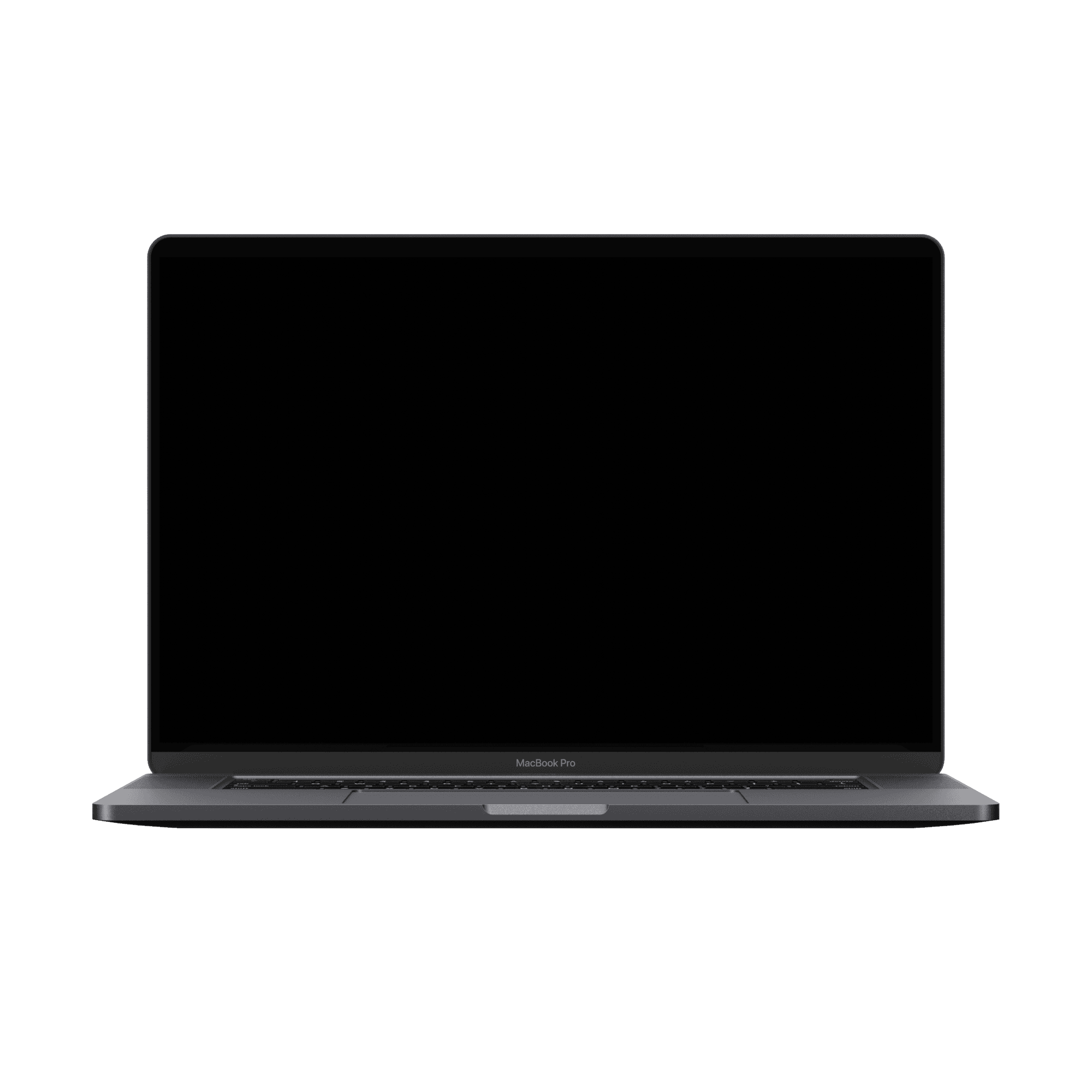Design to streamline user experience of patient follow-ups and appointment booking systems for tele- callers by Manipal Hospital
Design to streamline user experience of patient follow-ups and appointment booking systems for tele- callers by Manipal Hospital
Design to streamline user experience of patient follow-ups and appointment booking systems for tele- callers by Manipal Hospital
MAPPS
MAPPS
MAPPS






































































Goals achieved
Efficient user experience for booking doctor's appointment from the patient's page
Optimised filters for doctor's search
Flexibility of slot selection
Pre-filled fields for quick action
Next Step : Book New Appointment
We designed an all new experience for booking Doctor’s Appointment based on the new flow
Goals achieved
Revamp design for MAPPS
Optimised search for patient and their appointment history
Rescheduling and Cancellation Efficiency
Easy Status Tracking and Actions access






Solve technical glitches
Improve user experience inefficiencies while streamlining the workflow for tele-caller agents.
Client
My Role
User Research
UX/UI Design
Prototype
Team
Product
Design
Engineering
Client Specialist
Tools
Figma
Duration
Jan - March 2025
Project Overview
Manipal Hospitals is one of India’s leading healthcare providers, known for its commitment to quality healthcare and cutting-edge medical practices. With a vast network of hospitals, the group serves millions of patients every year, offering specialized treatments across a wide range of departments. A key aspect of their operations is ensuring a smooth and efficient appointment booking process for patients, which is managed through multiple call centers and digital platforms.Their current goal is to:
Setting some context before we begin...
What is MAPPS?
MAPPS (Manipal Appointment & Patient Processing System) is an internal telecaller portal designed for Manipal Hospitals to streamline lead management, appointment bookings, and patient follow-ups. It acts as a centralized tool for telecallers to efficiently track inquiries, convert leads, and coordinate patient journeys from initial contact to hospital visits, improving operational efficiency and customer experience.






What was the problem?
(From both user point and business of view)
Telecallers

Key actions like lead updates, appointment bookings, and follow-ups were time-consuming and buried in poorly structured workflows.
Lack of clarity in status tracking and limited visibility into lead history led to errors, delays, and missed opportunities.
Lack of Details / Information, many technical glitches and few functionalities that were needed were missing, making it difficult for telecallers to navigate quickly during calls.
Manipal Hospitals

Inefficient lead conversion workflows were impacting patient acquisition and revenue.
Operational bottlenecks and lack of standardization made it hard to scale telecalling across centers.
There was a clear need for a system that supports better data capture, drives conversions, and enhances customer experience.
Challenge: Explore how to

Reduce Redundancies: Simplify the search process by allowing agents to search directly by mobile number or patient name, eliminating the need to manually select hospitals and departments.
Clear Workflow: Create a seamless and logical flow for the booking process, from searching for slots to confirming appointments.
Minimal Training: Design the interface to be so intuitive that minimal training would be required for new agents, allowing quick adoption across all call centers.
What was our approach?

Discover

Define

Ideate

Deliver & Test
We visited the Concentrix call centre and conducted user research with the tele callers to understand the current booking process with MAPPS.
Some of the key observations :
User Research
There are approx 450- 500 users of MAPPS
The current major issues with MAPPS are latency and misaligned(mismatch) information.
Currently, agents take around 180 secs to complete a call. (avg handling time)
60% of Manipal bookings are from MAPPS
Open source/ PTP lines are used to fetch slots.
The top menu on MAPPS has tabs such as OPD (to see booked OPD appointments, health packages, and vaccinations), OPD VC (to see OPD virtual appointments) Call Center (to search doctors and book appointments) Health Checks (to book health packages and vaccinations)
There are multiple companies using MAPPS. While creating an appointment there is an option called source, they are selecting ‘CNX’ if it's done by the Concentrix team. Same practice followed by different channels like the web.
Slot Clash: Frequency of Selecting same slots by two agents at the same time is very low.

Understanding the tele- caller system and discovering applications in use

3) Multiple call centers are using MAPPS just to book appointments.
2) These are accessed only on the office network
1) Multiple tabs are opened by agents
MAPPS
Leadsquare
Knowlarity
Manipal website
Concentrix knowledge portal
4) Primary Lead capture is happening from LeadSquare.
5) Agent Monitor Tool : Knowlarity - Have enough information about the agent idle time, total number of calls, leaves and performance etc.
Who is the primary user?

Experience: 3 years
Location: Bengaluru, India
Education: Bachelor’s degree in Commerce
Rakesh Sharma
28 yr
What is Rakesh’s line of work?
Rakesh works as a tele-caller at a healthcare call center that manages appointment bookings for Manipal Hospitals. He is handling patient inquiries, managing appointments, and providing information about doctors and hospital services.
What does he do using MAPPS?
Rakesh uses MAPPS application for booking appointments, managing patient data, payment assistance, appointment rescheduling and cancellations and answering general queries.
What are his goals?
Efficient Appointment Booking
Error-Free Workflow
Access to Accurate Information
Reduce Redundant Steps
What are his pain points?
System Latency
Inaccurate Doctor Availability
Rescheduling Issues
Poor Search Functionality
Missing Payment link features
Rakesh states his problems

💭
I am a tele caller agent at a healthcare call center using the Mapps portal.
💭
I am trying to efficiently book patient appointments, provide accurate doctor availability information, and assist with payment processing.
💭
But I am unable to do it smoothly as of today.
💭
Because the system is slow, the search functionality is inefficient, and key information like doctor availability and payment status is either missing or inaccurate.
💭
Which makes me feel frustrated and unable to provide a satisfactory customer experience.
Let’s look at Rakesh’s current call journey
Step 1: Rakesh Receives a call on Knowlarity
Step 2: Rakesh Captures Info on LeadSquare
Step 3: Rakesh searching on MAPPS
Step 4: Rakesh Confirms the booking on MAPPS
Step 5: Rakesh updates the same in LeadSquare

This is what most telecallers were struggling with
01/
Application Latency
Primary concern is Current application is too slow. It affects customer experience and agent efficiency.
02/
Inefficient User Experience
Experience wise it was designed poorly. For example, Patient search is not just with phone numbers but also hospitals and departments they booked earlier is needed
03/
Lack of Details / Information
If the customer mentioned they didn't receive any sms or whatsapp msg for payment link, apart from canceling and booking again, the agent does not have an option.
04/
Many Technical Glitches
There are numerous technical issues with the current application. As a result, there is a need to create a new and improved solution.
05/
Few functionalities are missing
For example: Not having the option to send appointment confirmation msg (sms / whatsapp) if the payment is made.
How are we solving it?
After conducting the user research, contextual inquiry and analysing the gathered data, we were able to categorise the design goals into these 3 categories

01/
Streamline & Simplify User Experience (UX)
02/
Introduce key Missing Features
03/
Enhance Data Visibility






Let’s look at the current MAPPS
85%
Agents fail to meet the average call handling time (180 sec) due to the initial search stage
90%
Agents struggle to perform patient follow up actions during calls

User Challenges
To see appointments booked, the agent has to go to the OPD or OPD VC tabs. Enter the inputs like date, location, specialization etc to fetch upcoming appointments.
There is no option to book a new appointment directly from the same tab. The agent has to switch tabs and search for doctors and their availability.
Rescheduling of the appointments for which payment is done can't be done directly. The agent has to cancel the appointment and book a fresh appointment for future dates. The patient has to pay again for the fresh appointment and wait for the refund for 7 business days.
Agents can see the payment status but there is no option to resend payment link or booking confirmation status/message
Inefficient User Flow & user interface
Missing Flexibility to perform major tasks from the same page
We need to Revamp Mapps to enhance User Experience of Telecallers for quick navigation and faster task completion rate.
Who are we designing for?
What do we want to achieve?
Why is it necessary?

With that the brief was defined as...

Job Stories - Discovering design needs through JTBD
Tele-caller picks up the call
Existing/Registed Patient
New Patient
Proposed Tasks :
Proposed Tasks :
Inquire about existing appointment
View patient latest bookings
Reschedule or Cancel
Check payment status
Resend Important links like payment, sms, whatsapp
Book a new Appointment
Book a new Appointment
Create Patient Record
Doctor Search
Doctor details
Check for slot availability
Booking confirmation
Doctor Search
Doctor details
Check for slot availability
Booking confirmation
Enquire for patient details
Add membership type
Confirm details & create
Discovery/ Search

Starting point in MAPPS
Scenario 2
Scenario 1

What should the new Discovery Journey Map look like?
Patient Tab
Search by phone number, UHID or name
Registered patients found with the same phone number
Select patient
Add new member to the same number
Latest bookings
Start
Error
No Record found
Create new
Reschedule
Check status
Resend links
Add new appointment
Cancellation
End
(Perform actions- missing features)
Doctor, Health packages & vaccination
Conceptualization
Main screen concepts for appointment booking flow

Search patient

Search patient- no record

Search patient- results
Scenario 1
Simplified search experience
Final screen

Book appointment- doctor search

Doctor search- results

Doctor’s details - slots availability


Based of the research, user story and user flow, I started creating the low-fi concepts for primary use cases
Discovery/ Search - New Patient
Time to take a look at final designs | High Fidelity

Final Patient Screen - Existing Patient
New MAPPS streamlines multiple tele caller tasks—appointment booking, information access, and patient follow-ups—into a single interface, reducing dependency on multiple systems.
With a simplified interface and clear task flows, tele callers could get up to speed faster, with efficient appointments table.

Search bar
Discovery
All patients registered under same phone number
Add more members to same number (max 8 members under one number)
Patients
Selected patient’s last 5 bookings details in a table format
Filters to find specific appointment
All details are upfront like the date & time, doctor, hospital and appointment type
Direct status and actions for each appointment
Patient Appointments
All the status type with tooltip is reflected upfront for quick actions

1) Reschedule appointment Modal

2) Actions - added missing actions

1) Reschedule appointment Modal

2) Actions - added missing actions

1) Reschedule appointment Modal

2) Actions - added missing actions

1) Reschedule appointment Modal

2) Actions - added missing actions

Key Highlights
Performing Tasks - Introducing missing features
Final Prototype - Discover/Search
Goals achieved
Revamp design for MAPPS
Optimised search for patient and their appointment history
Rescheduling and Cancellation Efficiency
Easy Status Tracking and Actions access

Next Step : Book New Appointment
We designed an all new experience for booking Doctor’s Appointment based on the new flow
Goals achieved
Efficient user experience for booking doctor's appointment from the patient's page
Optimised filters for doctor's search
Flexibility of slot selection
Pre-filled fields for quick action

Break down
(The challenges)

01/
Limited toggle/switch between screens
02/
Quick filters for a smooth doctor search
03/
Doctor’s details, Location & Slot availability upfront
Highlight : Doctor’s card followed by Doctor’s detail page
Did some explorations for detailed doctor’s card



Horizontal detailed cards
Classic square doctor’s card- 2 variations
Major issue with this card was that it would make the user go through a long scroll, making it an inefficient user experience for tele callers
Ideal choice- Goal was to make the card detailed with upfront slots, options for actions like change location, change date and select consultation type directly from the card

After multiple Iterations final Doctor's card & Doctor's detail page

Basic details - Doctor’s picture, name, specialization and years of experience
Switch tabs- Hospital visit, video consultation, Prime Consultation. Consultation free mentioned upfront
Upfront options to change location and date to view slots flexibly from the card itself
Clear segregation of sections for tele callers to assist the patient faster


Doctor’s detail like specialization, experience, qualifications and more
Doctor’s schedule for each location
Flexible slot selection
Doctor recommendations
Key Metrics & Results - Post user testing & validation
The user testing sessions validated the effectiveness of the redesign, demonstrating significant improvements in task efficiency, error reduction, and user satisfaction. Continuous feedback loops and iterative design processes were pivotal in achieving these outcomes.
Before Redesign
Before Redesign
Before Redesign
65%
3.5 mins
15%
92%
1.8 mins
4%
After Redesign
After Redesign
After Redesign
Task Completion Rate
Average Time on Task
Error Rate
Insights & Adaptations
Simplified Navigation:
Insight: Users previously struggled with a cluttered interface and deep navigation hierarchies.
Adaptation: Implemented a streamlined layout with clear, consistent navigation paths, reducing cognitive load.
Enhanced Search functionalities & status tracking:
Insight: Telecallers found it challenging to track lead statuses and histories.
Adaptation: Introduced a comprehensive lead dashboard displaying real-time status updates and interaction histories.
Efficient Appointment Booking:
Insight: The prior system had multiple steps to book appointments, leading to delays.
Adaptation: Developed a simplified appointment booking system with integrated calendar views and doctor availability.

Project Learnings
Designing for Internal Users Requires Deep Context
Working with tele callers showed me how different internal tools are from consumer apps. Their priorities were speed, clarity, and minimal cognitive load—not visual flair. Observing their workflows firsthand helped me design around real constraints, not assumptions.
User Research Is Ongoing, Not a Phase
Initial interviews revealed surface-level pain points, but shadowing calls and observing behavior surfaced deeper needs—like the anxiety caused by slow system response or the confusion of toggling between tabs. These insights shaped design decisions well beyond the research phase.
Clarity Beats Cleverness
I had to resist the urge to over-design. What worked best were clean layouts, focused screens, and clear copy. Every second mattered to the tele callers, and unnecessary design patterns only slowed them down. Small UX details like pre-filled fields and status indicators drove major usability improvements.






